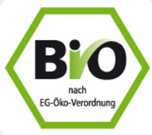Ban on self-certified sustainability labels – GREENWASHING II
The ban: From 27 September 2026, the ban on self-certified sustainability labels will apply in the EU: from then on, it will be prohibited to display a sustainability label that is not based on a certification scheme or is not established by public authorities.
The ban on self-certified sustainability labels is another focus of the EmpCo Directive (EU) 2024/825, which is already in force; such labelling has been included in the EU’s blacklist of unfair commercial practices [‘Empowerment Consumer’].
Sustainability labels: Sustainability labels, within the meaning of the ban, are voluntary trust marks, quality marks or the equivalent. They include not only so-called ‘environmental labels’, which cover only – or predominantly – environmental aspects of a product, a process or a trader; they also encompass labels that make statements about the social characteristics of a product throughout its value chain, for example, in relation to the quality and fairness of working conditions of those involved in each aspect of the production of the goods, such as adequate wages, social protection, the safety of the working environment and social dialogue, respect for human rights, equal treatment and opportunities for all, including gender equality, inclusion and diversity, donations to charity and the like. However, labels that emphasise a trader’s ethical commitments, such as animal welfare, are also regarded as sustainability labels. Such claims are often made in the form of logos, and as these kinds of brands and symbols also fall within the term ‘sustainability labels’, companies must be careful when using their logos to convey statements about their impact on society.
Public labels – such as the EU organic seal

– are not covered by the ban on self-certified sustainability labels.
Certification scheme. From 27 September 2026, the EU will require a reliable, transparent third-party certification scheme to be in place for non-governmental sustainability labels. If this is not established, the ban on self-certified sustainability labels will apply.
The EmpCo Directive defines the minimum criteria for this certification scheme. The criteria will be further specified by the Green Claims Directive, which has not yet entered into force, in order to increase the transparency and credibility of the labels and to maximise product sustainability and consumer information in the European Union.
Any such certification scheme will need to be set up by the holder of the label and must fulfil the following minimum criteria:
– Expert basis. The scheme is based on validation parameters that must be developed by the scheme owner in consultation with relevant experts and stakeholders.
– Certification by an independent third party. Certification is carried out by a third party, who must be competent and independent from both the scheme owner and the trader. In many cases, accredited testing companies must be involved. According to the Green Claims Directive, which has not yet come into force, this will be mandatory. Expertise and independence must meet the criteria of international, EU or national standards and the procedures provided for therein. The internationally relevant standard for product process and service certifiers is ‘ISO 17065’, which contains requirements for the competence, uniform working methods and impartiality of product certification bodies. The legal framework for the organisation and implementation of the accreditation of conformity assessment bodies in Regulation (EC) No. 765/2008 is also relevant.
– Sanctioning scheme. The certification scheme must provide for a complaint and resolution mechanism. In the event of non-compliance with the scheme’s requirements, it must provide for the withdrawal or suspension of the use of the sustainability label by the trader.
– Transparency and accessibility. The certification conditions must ultimately be publicly accessible online. In addition, the scheme must be open to all traders under transparent, fair, and non-discriminatory terms.
Environmental claim: In addition to this ban on self-certified sustainability labels, the EmpCo Directive contains another hurdle for sustainability labels. This is because such labels are also considered so-called ‘environmental claims’ if they suggest in the course of trade that a product or company has a positive or zero impact on the environment or is less damaging to the environment than competing products. Sustainability labels must therefore also fulfil the requirements set out in the EmpCo Directive for environmental claims. If they only contain a generic environmental claim for which the trader is not able to demonstrate recognised excellent environmental performance, then after 27 September 2026 such labelling will be banned. See also the blog article Ban on generic environmental claims – greenwashing.
Future limitation of new environmental labelling schemes. According to the Green Claims Directive, which has not yet entered into force, any validation procedure for new schemes established by private operators will only be approved (from a currently unknown date) if they can demonstrate added environmental impacts compared to the existing EU, national or regional schemes. From such date, the creation of new public schemes should be developed at the EU level only, and those belonging to third countries shall be subject to prior notification and approval by the Commission.
Learnings: From 27 September 2026, sustainability labels may only be used if they are based on a transparent scheme of certification by independent, competent third parties. However, according to the draft of the future Green Claims Directive, new environmental labelling schemes will only be approved by private parties in exceptional cases from a certain date. Companies should therefore already be making preparations for this situation.
– Certification marks: Certification marks are particularly appropriate for such sustainability labels. By their statutory nature, their owner is neutral, the audit conditions are transparent, the audit process is completely independent and objective, and they are open to all traders under transparent, fair, and non-discriminatory terms. However, the regulations governing the use of the EU certification mark must also be adapted to the special, new requirements when functioning as a sustainability label.